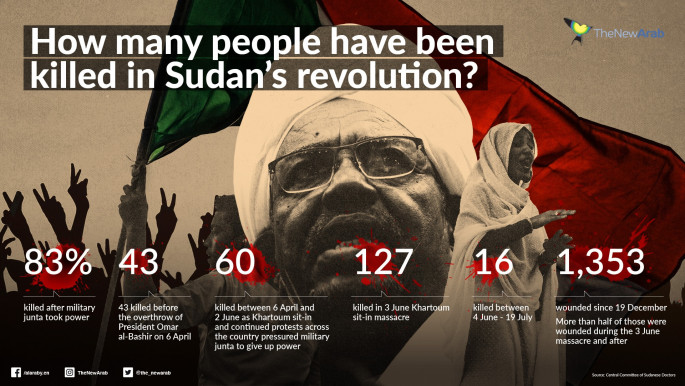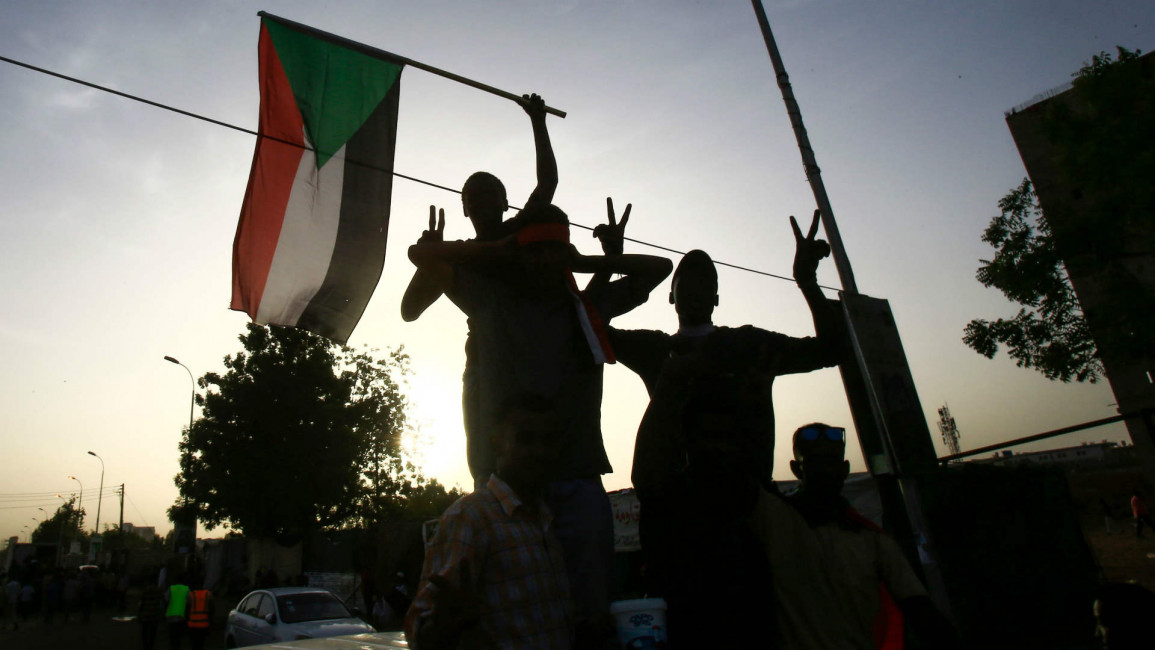Sudan's military junta killed more protesters than Bashir
At least 246 people have been killed since Sudan's revolution began in December last year, a leading doctors association announced on Thursday.
The statement by the Central Committee of Sudanese Doctors (CCSD) marks the first comprehensive count of civilians killed and wounded since 19 December, when demonstrations in the central Sudanese city of Atbara sparked the nationwide peaceful protest movement that brought down former President Omar al-Bashir.
The new report also details the number of wounded, with the CCSD noting that doctors across the country have treated 1,353 wounded protesters since December.
While the security forces were responsible for 43 deaths under the former president, stunning 83 percent of the victims were killed after the overthrow of Bashir.
Months of protests across the country and a weeks-long mass sit-in outside the military's headquarters in the capital Khartoum prompted the armed forces to oust the former dictator on 6 April.
But the initial jubilation experienced by Sudanese protesters turned to frustration and despair as negotiations between protest leaders and the military junta soured over the make-up and leadership of a proposed transitional power-sharing body.
April and May saw 60 people killed across the country as protests pressuring the military to hand over power continued, and the Rapid Support Forces (RSF) ramped up attempts to disperse the Khartoum sit-in.
The RSF - a paramilitary force commanded by the deputy leader of Sudan's current transitional military council - is an officialised offshoot of the Janjaweed, the infamous militias widely seen as responsible for war crimes and genocide in the Darfur conflict.
Those attempts finally culminated in the massacre of 3 June, also known as the 29 Ramadan massacre, when RSF and other armed forces brutally attacked the crowd gathered outside the General Command, beating, shooting and raping protesters.
According to the CCSD, 127 people were killed during the massacre. Just over half of those injured since December were wounded either during the 3 June massacre or in the weeks since.
While a much smaller number - 16 people - have lost their lives in the days since, the fate of Sudan’s revolution still hangs in the balance.
Power-sharing deal
The leaders of the country’s ruling military junta are widely seen to be responsible for the killing of at least 203 protesters since the overthrow of Bashir.
Deputy leader Mohammad Hamdan Dagalo’s RSF forces have been pictured in tens of videos - many shot by the men and boy soldiers themselves - dating back to the 3 June massacre and spread across social media since the end of a weeks-long internet blockade.
Such videos, alongside witness testimony, represent swathes of incontrovenable evidence that Dagalo and other military generals are responsible for shocking brutality and killings, activists say.
Opposition leaders and the military this week finally inked a power-sharing deal, but many Sudanese are wary of the agreement.
A military general will command a new sovereign transitional council for the next 21 months according to the new deal, only handing over power to a civilian transitional leader for the remaining 18 months, after which elections are planned to take place.
The continued domination of the military has made the agreement an extremely bitter pill to swallow for many protesters who are unsure whether the political deal will mean a decisive end to violence.
The CCSD's figures cannot be independently confirmed, and tallies have varied over the course of the revoluton. The group has, however, become the most widely cited and trusted source for information on the killed and wounded since December.
Follow us on Twitter: @The_NewArab


![Minnesota Tim Walz is working to court Muslim voters. [Getty]](/sites/default/files/styles/image_684x385/public/2169747529.jpeg?h=a5f2f23a&itok=b63Wif2V)




![Debris near Rafic Hariri International Airport [Getty]](/sites/default/files/styles/image_330x185/public/2176162423.jpeg?h=a5f2f23a&itok=MCSK9mkM)
![An Israeli air strike on Jabalia killed teenage journalist Hassan Hamad [Screengrab/X]](/sites/default/files/styles/image_212x120/public/2024-10/hassan%20hamad1.jpg?h=c12e0b96&itok=KstD_5xk)
